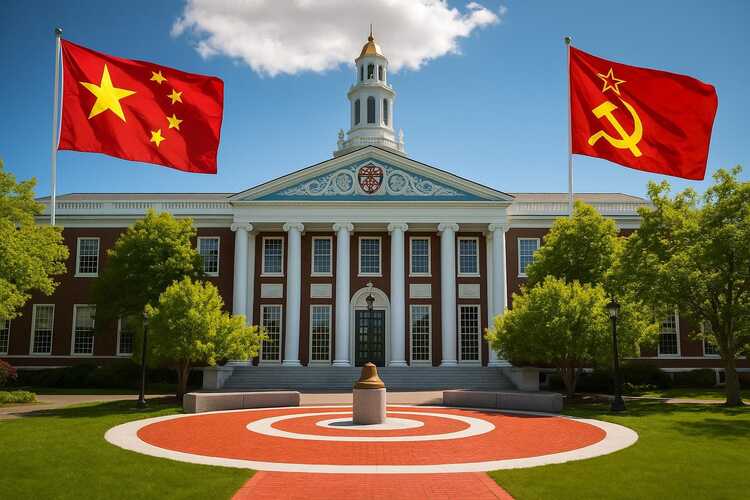US Cracks Down on Chinese Influence in Universities
Article Today, America:
For decades, top universities in the United States, especially Harvard, have served as training grounds for high-ranking Chinese Communist Party (CCP) officials. These institutions provided governance education and postgraduate study opportunities for Chinese elites. However, this long-standing tradition may soon come to an end, as the Trump administration plans to impose stricter regulations on Chinese students in the US—particularly those with links to the CCP.
Harvard — A Training School for China’s Communist Officials?
According to a detailed report by the Wall Street Journal, American universities, notably Harvard’s Kennedy School of Government, have become favorite destinations for Chinese government officials seeking executive education. These programs offered training in governance, economic policy, and international relations, helping Chinese bureaucrats understand Western administrative systems. Some Chinese intellectuals have even referred to Harvard as the most prestigious “party school” outside of China.
President Xi Jinping’s Daughter Studied at Harvard in Secret
Adding fuel to the controversy is the revelation that Chinese President Xi Jinping’s daughter, Xi Mingze, reportedly studied at Harvard under a pseudonym and in complete secrecy. Critics point to this as an example of the deep-rooted ties between the Chinese Communist Party and elite American institutions, raising questions about potential risks to national security.
Trump Administration Plans to Restrict Chinese Students
In response to rising concerns over China’s growing influence, the Trump administration is preparing a policy that would block Chinese students with Communist Party ties from entering American universities. There is also consideration to revoke the visas of those already studying in key fields such as science, technology, engineering, and mathematics (STEM), particularly if they are believed to have connections to the Chinese government or military.
This move is seen as a strategic effort to prevent intellectual and technological knowledge from being transferred to the Chinese government, especially in sectors with national security implications.
A Growing Concern Over Educational Exchanges
According to the Institute of International Education, there were 277,398 Chinese students enrolled in American institutions during the 2023–24 academic year. The proposed restrictions could significantly impact this number and strain educational ties between the two nations. US officials argue that while academic exchange is important, national interests and security must take priority.
In conclusion, what was once viewed as an academic partnership between the US and China is now being closely scrutinized. Harvard, once praised for its global educational outreach, is now caught in the middle of a geopolitical tug-of-war between two superpowers.



